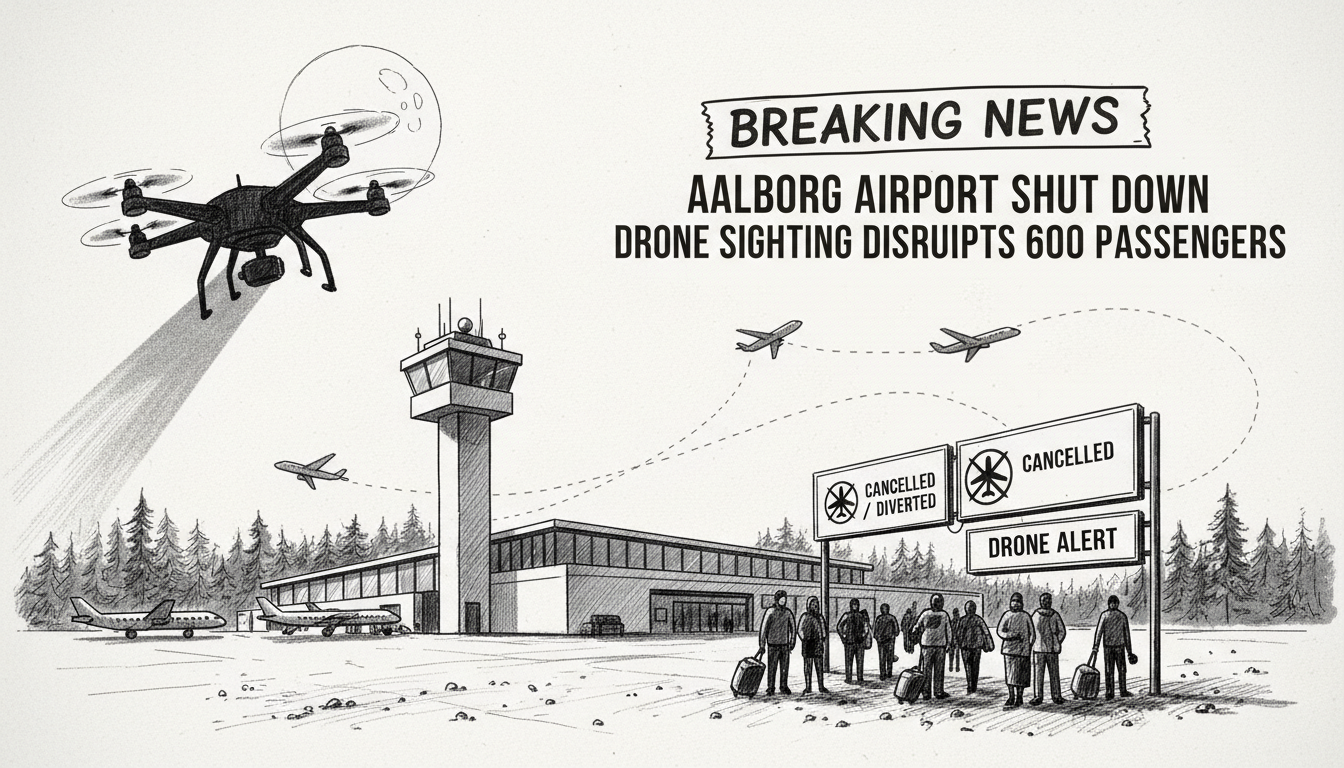A drone observation forced the closure of Aalborg Airport on Sunday evening. Air traffic controllers reported seeing drones near the airport at 9:20 PM. Naviair, the air navigation service provider, immediately closed the airspace. All flight operations stopped for one hour and fifteen minutes. The airspace reopened at 11:17 PM.
Morten Axelsen, the police duty officer for North Jutland, stated authorities could not confirm the drone presence by Monday morning. The closure affected four aircraft in total. Airport Director Niels Hemmingsen explained one KLM flight diverted to Billund Airport. Between 80 and 100 passengers traveled to Aalborg by bus afterward.
Three Copenhagen-bound flights also faced disruptions. One flight canceled entirely while two others landed late. Approximately 100 passengers required hotel accommodations. In total, about 600 passengers experienced travel disruptions due to the closure. Around 400 passengers arrived on the two delayed Sunday evening flights.
Hemmingsen acknowledged the financial impact without providing exact figures. He confirmed such closures consume considerable resources. Naviair holds responsibility for airspace closure decisions while Aalborg Airport manages passenger consequences. The director emphasized that safety remains the absolute priority when closing airspace.
Denmark maintains strict drone regulations following multiple airport incidents in recent years. Danish aviation authorities implemented enhanced drone detection systems after Copenhagen Airport faced similar disruptions. The country's flat terrain and coastal locations make airports particularly vulnerable to unauthorized drone activity.
This incident highlights growing European concerns about drone security near critical infrastructure. Germany and Sweden reported similar airport disruptions in recent months. Aviation experts note that even unconfirmed drone sightings trigger immediate safety protocols. The economic ripple effects extend beyond immediate passenger inconvenience to include airline operational costs and potential tourism impacts.
International travelers should note that Nordic airports implement zero-tolerance policies for drone violations. Denmark's transport ministry recently increased penalties for illegal drone use near airports. Travelers flying through regional hubs like Aalborg might consider purchasing travel insurance covering drone-related disruptions.
The Aalborg incident demonstrates how quickly modern air travel can halt due to drone threats. While safety protocols functioned as designed, the substantial passenger impact raises questions about balancing security with operational continuity. Airport authorities continue developing more precise drone detection technology to minimize future disruptions.

